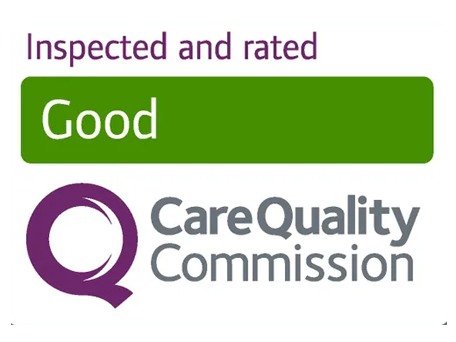Complex Care
Complex care?
Complex care refers to a specialised level of healthcare that is designed to meet your needs with complex medical conditions or multiple healthcare requirements. It involves comprehensive, coordinated, and integrated care that goes beyond routine medical interventions.
Complex care is typically provided to individuals who have chronic, long-term illnesses or disabilities that require ongoing management and support. These conditions may include:

Multiple chronic diseases
Multiple chronic diseases: Individuals with multiple chronic conditions, such as diabetes, heart disease, and respiratory disorders, require coordinated care to manage their complex health needs effectively.
Intellectual or developmental disabilities
Individuals with intellectual or developmental disabilities often require specialized care that addresses their unique challenges, including cognitive impairments, behavioural difficulties, and sensory sensitivities.
Neurological disorders
Conditions like cerebral palsy, multiple sclerosis, or Parkinson's disease may require complex care due to the complex and diverse symptoms they present.
Traumatic injuries
Individuals with severe injuries resulting from accidents, trauma, or brain injuries often require long-term care that encompasses physical rehabilitation, psychological support, and ongoing medical management.
Palliative and end-of-life care
Complex care is also provided to individuals with advanced, life-limiting illnesses who require comprehensive symptom management, emotional support, and coordination of care to improve their quality of life.
Key elements of complex care may include:
Multidisciplinary teams: Healthcare professionals from different disciplines collaborate to provide comprehensive care, including physicians, nurses, social workers, therapists, and other specialists as needed.
Individualized care plans: Complex care focuses on creating personalised care plans that consider the unique needs, preferences, and goals of everyone. These plans often involve close involvement you and your family or our carers.
Continuity of care: Complex care aims to ensure continuity of care by establishing strong communication channels, maintaining medical records, and facilitating smooth transitions between different healthcare settings.
Patient and carer education: Education plays a vital role in complex care, empowering you and our carers to actively participate in your care, self-manage conditions, and make informed decisions. The goal of complex care is to optimise health outcomes, enhance quality of life, and promote independence for all individuals with complex medical needs. By addressing the multifaceted aspects of your health, complex care aims to improve overall well-being and provide a holistic approach to healthcare delivery.


Who is it for?
Individuals with complex disabilities: People with intellectual or developmental disabilities, such as autism spectrum disorders, Down syndrome, or cerebral palsy, often require complex care. These individuals may have unique challenges that require specialised support and interventions.
Individuals with neurological disorders: Complex care is often necessary for individuals with neurological conditions, such as multiple sclerosis, Parkinson’s disease, epilepsy, or traumatic brain injuries. These conditions may have diverse symptoms and require ongoing management and support.
Individuals with severe injuries or trauma: Complex care can be beneficial for individuals who have experienced severe injuries or trauma, such as spinal cord injuries, traumatic brain injuries, or severe burns. These individuals often require comprehensive rehabilitation, long-term medical management, and psychosocial support.
Individuals requiring palliative or end-of-life care: Complex care is essential for individuals with advanced, life-limiting illnesses who require comprehensive symptom management, emotional support, and coordination of care to enhance the quality of life during palliative or end-of-life stages.
Complex care will be provided by our specialist team and other healthcare professionals who will work collaboratively to address the diverse needs of the individual. The goal is to provide personalized, comprehensive, and coordinated care that improves health outcomes, enhances quality of life, and promotes independence for individuals with complex medical needs.


The types of complex care we offer?
Disease management programs
These programs are designed to support you with chronic conditions such as diabetes, heart disease, asthma, or chronic obstructive pulmonary disease (COPD). They focus on comprehensive care plans, education, self-management strategies, medication management, and regular monitoring to optimize health outcomes and prevent complications.
Care coordination services
Care coordination involves the coordination and integration of various healthcare providers, specialists, and support services to ensure seamless delivery of your care. The care coordinators will work closely with you, your families, and the healthcare team to manage your appointments, referrals, transitions of care, and overall care plans.
Palliative and end-of-life care
Complex care may include specialised palliative and end-of-life services for individuals with advanced, life-limiting illnesses. This type of care focuses on symptom management, pain control, emotional support, and coordination of services to enhance quality of life and support individuals and their families during this challenging time.
Rehabilitation programs
Rehabilitation services are crucial for individuals recovering from severe injuries, surgeries, or strokes. These programs aim to restore function, improve mobility, and enhance independence through physical therapy, occupational therapy, speech therapy, and other specialised interventions.
Mental health and behavioural health services
Complex care may include mental health and behavioural health services for individuals with complex psychiatric conditions, developmental disorders, or behavioural challenges. This can involve counselling, therapy, medication management, and support for individuals and their families.
Home-based or community-based care
Complex care can be provided in a home or community setting to support individuals who require ongoing assistance and monitoring but prefer to receive care in familiar surroundings. This may involve home health services, home nursing, or community-based programs tailored to your specific needs. It's important to note that complex care is highly individualised and tailored to your needs.
The features of a support plan include:
Care Coordination and Case Management: Complex care often involves multiple healthcare providers and support services. A support plan includes coordination and case management services to ensure seamless communication and collaboration between all involved parties. This includes scheduling appointments, managing referrals, and facilitating communication among the care team.
Individualised Care Plan: Divine Healthcare will support you to outline your individualised care plan tailored to your specific needs, preferences, and goals. It includes detailed strategies and interventions to address medical, functional, psychosocial, and behavioural aspects of care. The plan considers the complexity of your condition and aims to optimise the overall well-being and quality of life.
Medication Management: For individuals with complex medical conditions, medication management is crucial. The support plan includes a detailed medication regimen that outlines the specific medications, dosages, and administration schedules. It may also include strategies to monitor medication effectiveness, address potential side effects, and ensure medication adherence. Our team will support you to achieve the optimum goal in managing your medication needs.
Regular Monitoring and Evaluation: The support plan includes mechanisms for regular monitoring and evaluation of the individual’s progress and response to interventions. This may involve periodic assessments, check-ins with the care team, and adjustments to the care plan based on changing needs or goals.
Crisis Management and Emergency Preparedness: Complex care plans should incorporate strategies for crisis management and emergency preparedness. This may involve outlining emergency contact information, specifying procedures for handling medical emergencies, and providing clear instructions for family members, caregivers, and the care team to follow during critical situations.
Transition Planning: If there are transitions in your care, such as from hospital to home, our team will help with the support plan to include transition planning ensuring continuity of care. This involves coordinating the transfer of medical information, ensuring appropriate support is in place, and facilitating a smooth transition between care settings.
Regular Care Plan Review and Updates: The support plan is a dynamic document that should be regularly reviewed and updated based on your changing needs and goals. This allows for adjustments in care strategies, interventions, and goals to ensure ongoing effectiveness and relevance. It’s important to note that the specific features of a support plan for complex care may vary depending on your unique needs. Our team ensure your plan is to be person-centred, considering your preferences, values, and aspirations, while aiming to provide comprehensive and holistic care.
Clinical nurse input
Initial care assessment
Your initial care assessment is a full evaluation of your condition to best understand your support needs.
Your needs, prioritised
Every aspect of support plan will always be designed around ensuring your needs are being prioritised.
Complex home care from Divine Healthcare Solutions
Though we are emerging company, we a have a team of expertise with 50 years’ experience in the healthcare profession. With this experience on board over, you can trust us to deliver expert support.
At Divine Healthcare Solutions we’ve been delivering person-centred home for few years now. In that time, we’ve helped people to continue living independently, comfortably, and securely at home.
In the context of complex care, our dedicated team will offer a range of services designed to meet your unique needs. This may include:

Medication Management: Administering medications, organizing pill boxes, and ensuring compliance with prescribed treatments.
Specialist Support: Delivering care tailored to specific conditions, such as dementia, multiple sclerosis, Parkinson’s disease, or palliative care.
Rehabilitation Services: Supporting individuals in their recovery process through physiotherapy, occupational therapy, or speech therapy.
Ventilation and Respiratory Support: Our dedicated team will be assisting you with the required respiratory support you may need.
Complex Equipment Assistance: Our team will assist you with the use and maintenance of complex medical equipment, such as hoists, mobility aids, or communication devices.
Nutritional Support: our experience team will assist with meal preparation, special dietary needs, and feeding support.
Emotional and Psychological Support: Providing companionship, social interaction, and emotional support to you and your families.
Care Coordination: Our team will Liaise with other healthcare professionals, arranging appointments, and ensuring seamless communication between different care providers.
Complex care support in home care requires a multidisciplinary approach involving trained and experienced care workers, nurses, therapists, and care managers. The care plans are typically developed in collaboration with the you and your family, and other healthcare professionals to ensure that the services provided are person-centred and promote independence and well-being.
Continual reviews
Regular Assessment
Conducting regular assessments is crucial for monitoring the individual's progress, identifying any changes in their condition, and understanding their evolving needs. This may involve physical assessments, psychosocial evaluations, cognitive assessments, and input from the individual, their family, and the care team.
Goal Evaluation
Continual reviews involve evaluating the progress toward the goals set in the care plan. This allows for reflection on whether the goals are being achieved or need modification. It provides an opportunity to discuss and establish new goals based on the individual's changing circumstances and aspirations.
Care Plan Adjustments
Based on the assessment findings and goal evaluation, the care plan may need adjustments to ensure it remains effective and aligned with the individual's needs. This may involve modifying interventions, medications, therapies, or other aspects of the care plan. It also ensures that the care plan considers any new information or changes in the individual's condition.
Communication and Collaboration
Continual reviews involve ongoing communication and collaboration among the care team members, the individual, and their family. This facilitates information sharing, discussion of progress and challenges, and decision-making regarding potential modifications to the care plan. Regular team meetings or care conferences may be scheduled to facilitate these discussions.
Documentation and Record Keeping
Accurate and up-to-date documentation of the care provided, and review outcomes is important in complex care. This helps maintain a comprehensive record of the individual's progress, interventions, adjustments, and outcomes. It also supports continuity of care, information sharing, and coordination among healthcare providers.
Multidisciplinary Input
In complex care, input from various healthcare professionals involved in the individual's care is valuable. Continual reviews may involve consulting specialists, therapists, social workers, and other professionals to gather their expertise, insights, and recommendations for optimizing the care provided.
Feedback from the Individual and Family
Continual reviews should also include gathering feedback from the individual receiving care and their family. Their perspectives, experiences, and preferences are essential in evaluating the effectiveness and satisfaction with the care provided. This feedback can inform potential improvements and adjustments in the care plan.
Quality Assurance and Performance Monitoring
Continual reviews play a role in quality assurance and performance monitoring in complex care settings. By evaluating the outcomes, processes, and adherence to best practices, care providers can identify areas for improvement, ensure compliance with standards, and promote ongoing quality improvement initiatives.
Education and Training
Continual reviews may reveal the need for additional education or training for the care team members involved in providing complex care. This could include updates on evidence-based practices, new interventions, emerging research, or specific skills related to the individual's condition. Ongoing professional development ensures the care team remains competent and up to date.
The length of your complex care will vary depending on your personal situation.
We recognise that everyone’s care situation is completely different – whether you’ve just come out of hospital and need care for weeks or months to help you get you back on your feet, or if you have a complex condition that you’ve lived with since birth and want to be able to live by yourself.
That’s why we’re so committed to ensuring every customer receives a care plan that is designed with their personal requirements and preferences at the centre, ensuring you’re always fully supported.

To Arrange a call
- Speak to our team.
- Call our team of experts to talk through your options and any questions you may have.
- Free home care assessment
- Your local Helping Hands manager will visit you to discuss your requirements and learn about the type of carer you’re after.
- Find your carer.
- We’ll help to match you with a carer that meets your preferences and has the right skills and experience for your needs.

FAQs
NHS:
This NHS webpage offers information about complex care services, including what it involves, who it is for, and how to access it.
Social Care Institute for Excellence (SCIE):
SCIE provides resources and guidance on social care, including complex care.
Care Quality Commission (CQC):
The CQC is the independent regulator of health and social care services in England. Their website provides information about registered care providers, including complex care services. You can access inspection reports, ratings, and other relevant information.
United Kingdom Homecare Association (UKHCA):
UKHCA is a professional association representing home care providers in the UK. Their website offers information about home care services, including complex care.
Carers UK:
Carers UK is a charity organization that provides support and information to carers across the UK. Their website offers resources, advice, and guidance for individuals involved in providing care, including complex care situations.
Age UK:
Age UK is a charity dedicated to supporting older adults. Their website provides information and resources on various aspects of care, including complex care, specific to the needs of older individuals.
CONNECT WITH US
For further information on any of the services that we can provide for you, please contact us in the following ways:






















